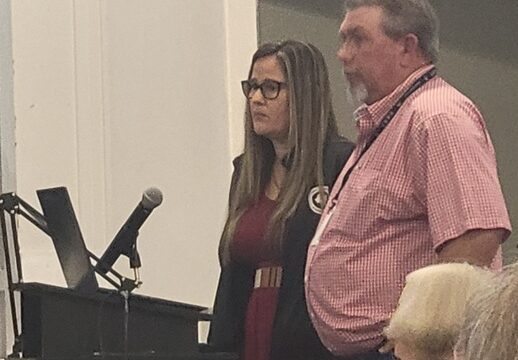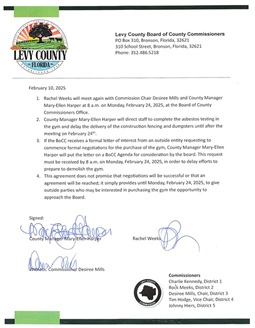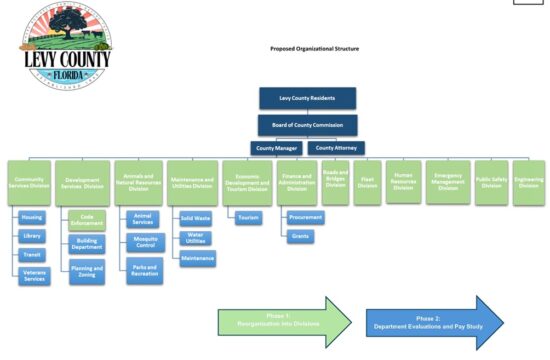By Terry Witt – Spotlight Senior Reporter
The Levy County Commission is aware that big government sometimes passes on new rules and regulations it must follow, but the latest marching orders from Tallahassee will likely impact residents living in western Levy County more than county government itself.
Commissioners are trying to sort through proposed rules and regulations from the Florida Department of Environmental Protection that could potentially hit residents living on lots of one acre or less with a requirement to install more expensive septic tank systems than they currently use on small lots.
Wesley Asbell, environmental health director for the Levy County Health Department was invited to speak at Tuesday’s county commission meeting to explain the new rules. The Department of Health regulates septic tanks and therefore has a role in enforcing the new rules when they take effect, but DEP is required to implement the Florida Springs and Aquifer Protection Act, which is driving the rules.
The area west of U.S. 19 from Fanning Springs to Otter Creek is the general area of Levy County that would likely be impacted by the new septic tank regulations, although no one can be absolutely certain until the final Basin Management Action Plan maps (BMAPS) are adopted on July 1.
DEP is developing BMAPS to protect highly sensitive springs in this region of Florida from nitrate and nutrient pollution caused by traditional septic tanks and farming activities. Traditional septic tanks are good for eliminating bacteria and viruses but not nutrients and nitrates, according to Asbell.
This region has the highest number of freshwater springs in Florida. Nitrate pollution can carpet the floor of the spring with algae. The springs flow into rivers and nitrates can cause the same type of problem in rivers if not kept in check. Some bass fishermen complain that the Suwannee River doesn’t have the bass fishery it once did due to pollution, but they don’t have the science to prove it.
County Commission Chairman John Meeks said Property Appraiser Osborne Barker sent him an email on Tuesday saying 2,300 residential lots in the affected area could be impacted by the new septic tank rules requiring more expensive treatment systems.
Under the new rules, a resident in Priority Focus Area (PFA) near Outstanding Florida Springs who applies for a new construction permit on a lot size of less than one acre would have the following options to meet the new septic tank requirements:
1. Connect to available sewers.
2. Or install a traditional septic tank if the property is identified as being legally eligible for a septic tank.
3. Install a more expensive nitrogen-reducing septic technology such as a performance-based treatment system, or an aerobic treatment unit, or an “in-ground passive nitrogen-reducing system” that uses additional soil and wood chip layers to reduce nitrogen flow to the aquifer.
4. The rules for the in-ground nitrogen reducing system using bio-filters have not been approved. It would be the least expensive system other than a traditional septic tank.
An addition to a home that would cause an increase in the flow of effluent could place the homeowner under the new rules, or, if a second residence was added to the property it could trigger the rules.
Asbell said people are welcome to call him to ask for additional information. His phone number is 486-5301. He said he welcomes calls from anyone who has questions.
The more expensive aerobic treatment systems are currently found mostly on rivers in Levy County, according to Asbell.
Those systems require an annual operating permit. The system must be evaluated annually and a permit from the health department is required every two years. But those same systems could be required for lots of less than an area in inland properties identified as PFA’s.
Failure to abide by the law could result in fines.
Photos by Terry Witt:
1. Wesley Asbell, environmental health director for the Levy County Health Department explains new septic tank regulations for portions of Levy County.
2. This graphic shows how an In-Ground Nitrogen-Reducing Biofilter system would operate, but rules for the system have not been approved.
Board of County Commission Regular Meeting May 22, 2018
Posted May 22, 2018













